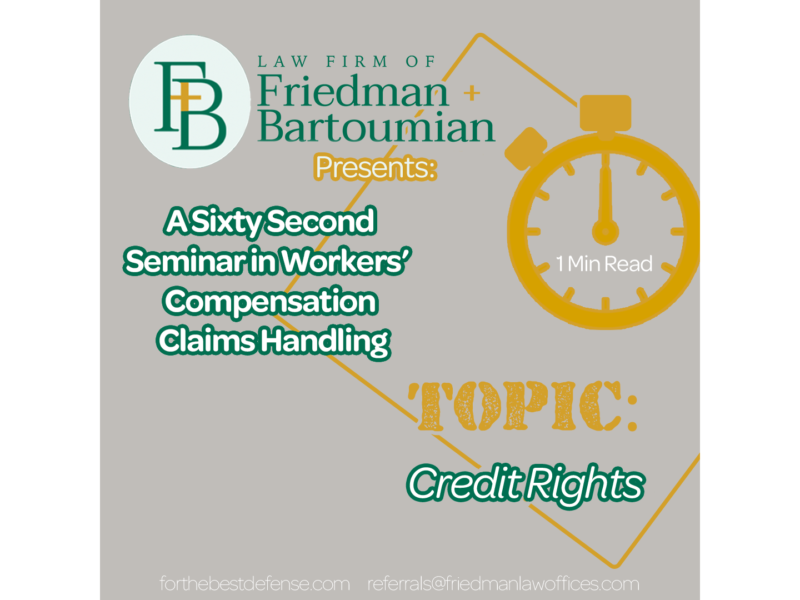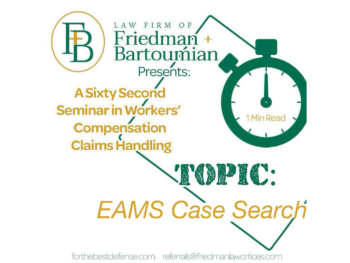When an industrial accident is caused by a third party, an injured worker has the right to seek workers’ compensation benefits against the employer, as well as pursue a tort action against all responsible individuals. If the injured worker thereafter receives a settlement in a third-party case, the employer is entitled to a credit against future workers’ compensation benefits up to the amount of the employee’s net third-party recovery. This is known as credit rights, authorized under LC 3861. However, credit rights are reduced and sometimes eliminated when employer negligence is a contributing factor. For this reason, workers’ compensation claims adjusters usually do not assert a credit without first obtaining a judicial order. Otherwise, a penalty may be assessed against an administrator for unilaterally applying a contested credit.
Some injured workers and their attorneys have been known to play games to hinder an employer’s pursuit of credit rights, especially where there is no employer negligence. For example, suppose a delivery driver is injured in a motor vehicle accident caused by a third party who ran a red light. There is no employer negligence in this situation. Upon resolution of the civil case the injured worker may play games by not divulging the settlement to the employer, where it can remain undiscovered for months. Afterwards, it may take an additional year or longer to obtain an order of credit from the appeals board. A claims administrator may ask, “Can’t a non-negligent employer just unilaterally assert a credit against future workers’ compensation benefits instead of waiting years for an order to be issued?” The WCAB answers this question with a resounding, “No.” In a case entitled Mike Lowry Trucking v. WCAB (Stephenson), the Board ruled in a 2-1 panel decision that credit rights are only allowed upon order from a judge. This decision opens the door to encourage employees and applicant attorneys to stall credit proceedings, often needlessly and without merit. Applicant attorneys are well aware that while credit rights remain unresolved, full workers’ compensation benefits, including expensive medical care and biweekly disability payments, must continue being provided at the employer’s expense. Meanwhile, the injured worker blissfully enjoys the fruits of a large civil settlement while the non-negligent employer is unfairly denied their credit rights. There must be a remedy to this unjust situation.
We believe we have found an answer. The Court of Appeals allows an employer to unilaterally assert a credit and thwart needless delays when it is “financially foolhardy” to continue providing industrial benefits. In SCIF v. WCAB (Brown) 47 CCC 358, the appellate court ruled it was legally proper for an employer to unilaterally assert a credit that exceeds future workers’ compensation financial obligations. However, should a credit be unilaterally asserted, we do recommend simultaneously filing a petition at the board. Interestingly enough, a conflict of opinion now exists between the Appeals Board (in Stephenson) and the Court of Appeals (in Brown) on whether or not an employer may unilaterally assert credit. Whose opinion is correct? We choose to place our bet on the Appellate Court. Who do you choose?



 New and Further Disability: A Sixty-Second Seminar in Workers’ Compensation Claims Handling
New and Further Disability: A Sixty-Second Seminar in Workers’ Compensation Claims Handling
Leave a Reply